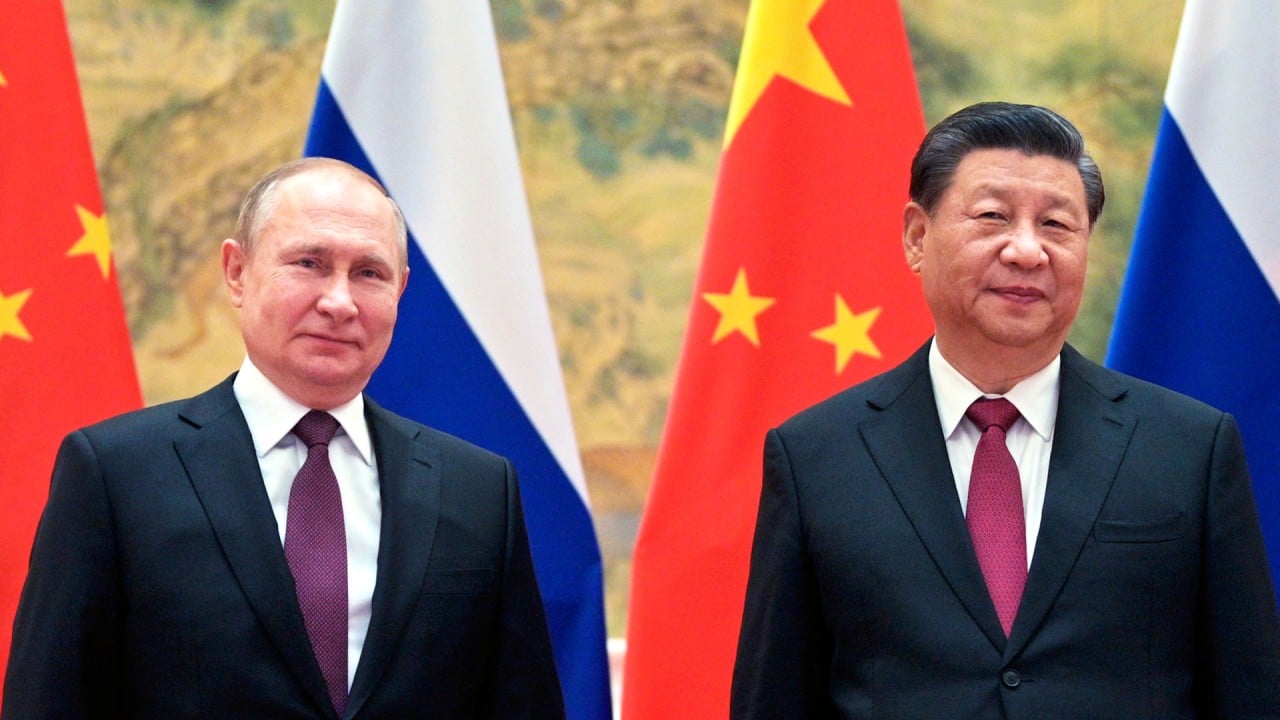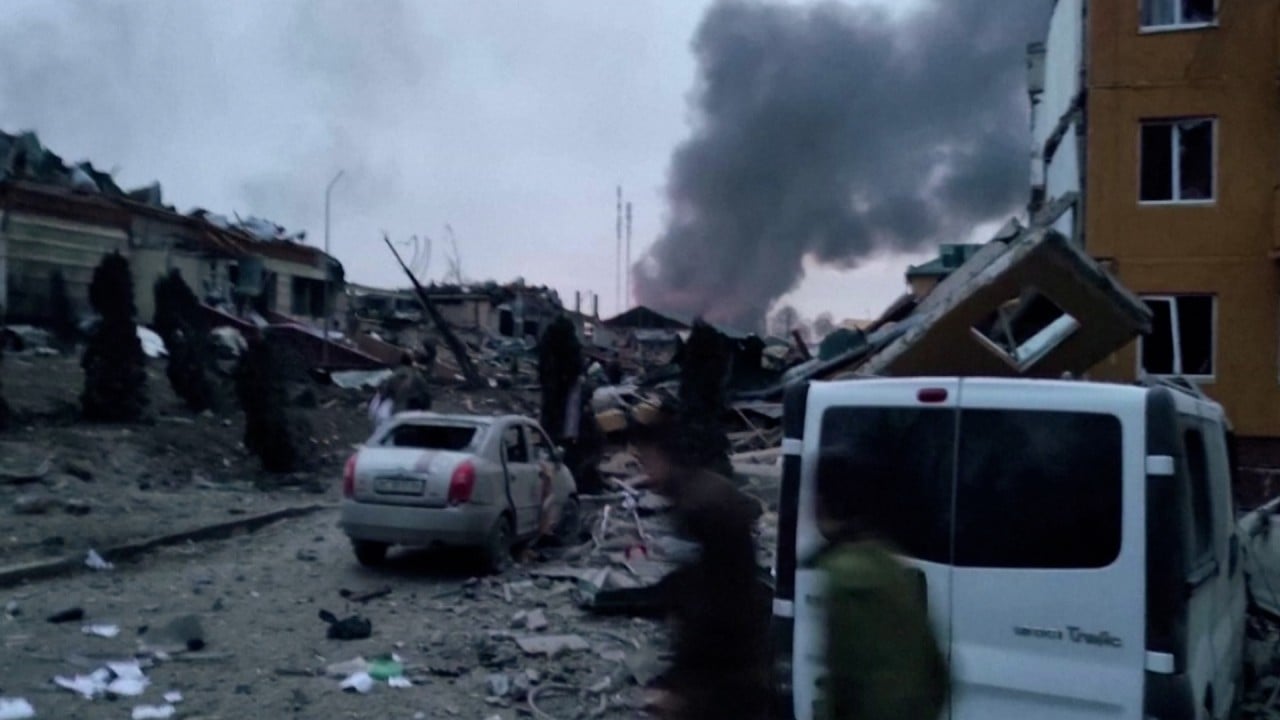
Ukraine war: China risks isolation if it doesn’t distance itself from Russia, says Shanghai academic
- Hu Wei, who is associated with the State Council, says the war could ultimately see the US regain leadership in the West and China become more isolated
- In the article censored in his home country Hu urges haste: ‘There is still a window period of one or two weeks before China loses its room to manoeuvre’
In a controversial analysis widely shared overseas but censored in China, Hu Wei, vice-chairman of the Public Policy Research Centre of the Counsellor’s Office of the State Council, wrote that he expected Russia to face immense military and economic challenges while China would become more isolated by the world if it did not move to sever ties with Putin.
“China cannot be tied to [Russian President Vladimir] Putin and needs to be cut off as soon as possible,” Hu wrote.
“Under current international circumstances, China can only proceed by safeguarding its own best interests, choosing the lesser of two evils and unloading the burden of Russia.
“At present, it is estimated that there is still a window period of one or two weeks before China loses its room to manoeuvre. China must act decisively.”
Will China heed US, European calls to help restrain Russia in Ukraine?
Hu’s article was first published in Chinese on March 5 as China attempted an increasingly challenging balancing act with Beijing, calling for peaceful negotiations and showing sympathy to Ukraine while refraining from openly criticising Russia.
At home, authorities spin pro-Russia propaganda on mainstream media while censoring social media posts too critical of Russia.
Hu submitted the original Chinese article, titled “Possible outcomes of the Russo-Ukrainian War and China’s Choice”, to the Chinese version of the US-China Perception Monitor (USCNPM), an online publication by the Carter Centre, founded by former US president Jimmy Carter, according to its website.
The article was pulled from Chinese cyberspace after attracting more than 100,000 views.
The English translation was published on Saturday, a week after the original Chinese version.
The post by USCNPM on its WeChat account has been deleted, with a notice by WeChat stating it “violates regulations”. A handful of reposts of the article by other WeChat accounts were also deleted.
On Weibo, China’s equivalent of Twitter, Hu was heavily criticised by nationalists who displayed an overwhelming pro-Russia sentiment and his original article cannot be found.
Will Russia’s Asia pivot and China’s help soften blow from sanctions?
Hu, an expert in Marxism and political science, is chairman of the Shanghai Public Policy Research Association and a professor with Shanghai’s Communist Party school, a training ground for cadres.
In his article, Hu predicted “the future of the Russo-Ukrainian war”, laying out potential scenarios, including that Putin’s initial blitzkrieg over Ukraine failed, resulting in high political, economic and diplomatic costs at home and abroad.
He said the war could ultimately see the US regain leadership in the Western world, which would become more united, and China would become more isolated if it did not distance itself.
Despite China’s close partnership with Russia, in international politics there were “no eternal allies nor perpetual enemies” but “our interests are eternal and perpetual”, he said.
“China should avoid playing both sides, give up being neutral, and choose the mainstream position in the world,” Hu wrote.
Hu’s expertise is mainly on domestic governance and he has a record of pushing the envelope.
In December, Hu made a speech at Shanghai Jiao Tong University in which he called for a push towards more democratic reform within China’s one-party political system, and for keeping friendly ties with Western countries.
The speech was published by Jiefang Daily, the official mouthpiece of the Shanghai Communist Party committee.



